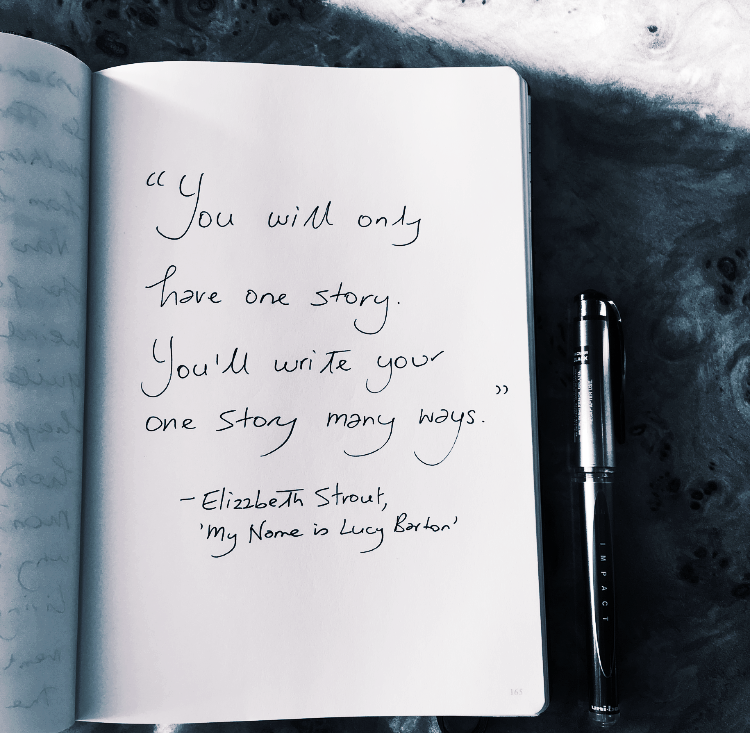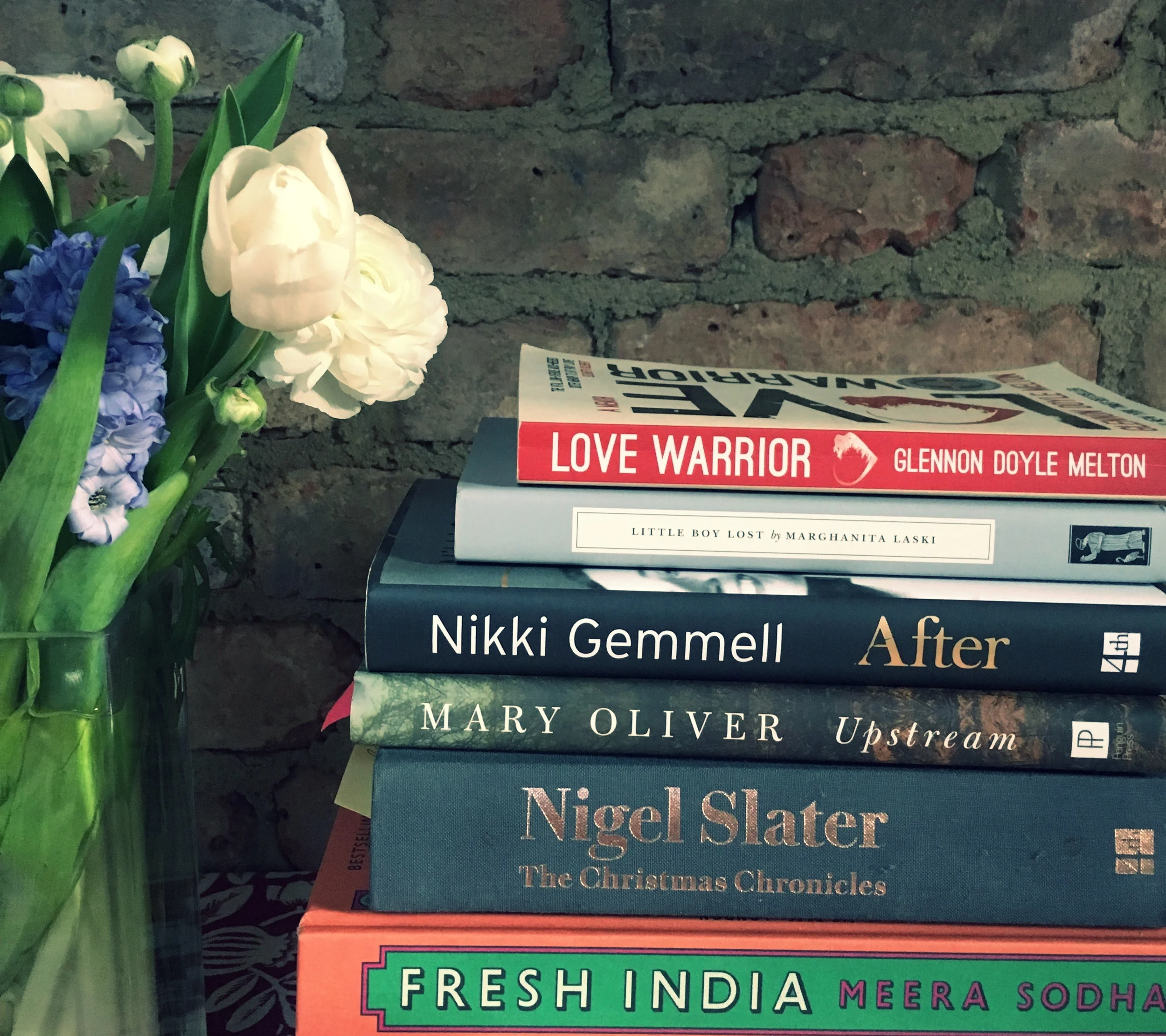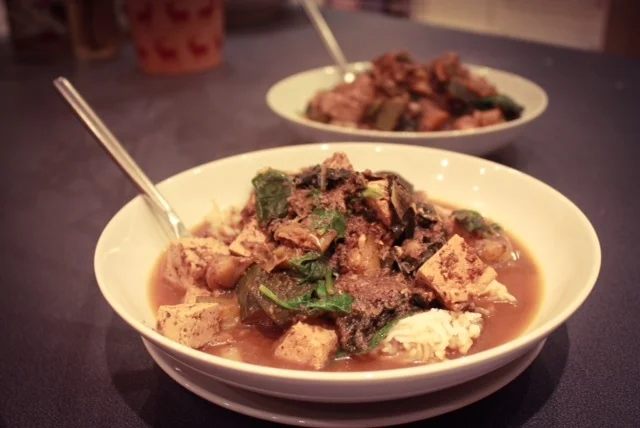The opening pages - the altar, if you will - of my current journal, where my ritual is to make a collage before I start writing in its pages. I don't think it was an accident that those words somehow found each other.
“It’s not a woman’s job to get smaller and smaller and take up less and less space until she disappears so the world can be more comfortable.”
Sas Petherick wrote recently about reclaiming the word 'bossy' for herself - a word that had negative connotations for her since childhood, which subsequently affected how she saw herself and how she interacted with the world from a place of fear rather than worthiness. How she went through life doing everything she could to avoid being called 'bossy' because it made her feel so small.
Sas says:
Usually, there is a word.
Some phrase or sentence that when uttered, has the power to leave us feeling small and powerless. Diminished. Childlike.
I wonder what is it for you?
I’ve been trying to reclaim the word loud.
When I was younger, being called ‘loud’ - too loud, more often than not - left me feeling diminished and cut down. It felt like a rejection of my most essential self - an excitable, enthusiastic, outgoing little girl who was the first to put her hand up in class if she knew the answer; who loved to talk to people, tell stories and share things with others; who loved making up games, performing and making people laugh; who was fascinated by the world and the people in it.
When people told me I was 'loud', that sent me the message that I needed to shut up. That I was too much. That what I had to say wasn't important, no one was interested. That making too much noise - taking up too much space - was not a good thing and I would be more acceptable, and more likeable, if I were quieter. Funnily enough, I don't recall the boys I knew being told they were too loud (but that's another story).
As I wasn't one of the 'pretty' or 'popular' girls either, the label of 'loud' made me even more self-conscious of my failings and flaws. As I became a teenager I found myself retreating inwards - I was only loud with people I felt I could be myself around (mostly my three sisters). Yet I still loved performing and acting, often winning the lead roles in school plays, so 'withdrawn' was probably not a word people would have used to describe me! And I noticed that people tended to like me more, or didn't mind how 'loud' I was, when I was entertaining them.
But what people didn’t realise - and nor did I, until I went to therapy as an adult - was that acting was a place of safety for me. All that gregariousness, enthusiasm and fun that I felt I couldn't express as myself went into playing parts, pretending to be someone else, instead. This eventually seeped through to the rest of my life and as a result, I no longer knew who I really was.
About 12 years ago, in my mid-twenties, I tried to reclaim that word 'loud'. I became that confident young girl again - who liked who she was and let the world know it. Who put her hand up. Who enjoyed sharing her stories and experiences with people, and sharing in theirs too. Who was vivacious, full of energy and, for the first time in her life, dropped her people-pleasing tendencies and put her own needs first. She was also a bit broken, and very naive, but was determined to rediscover her true self and purpose, and proud of how far she'd come in the process.
But then came the familiar cries of ‘too loud’ and it all unravelled.
What hurts the most when I think about that time is not that I was betrayed and torn down by people I thought were friends, because they were insecure, unhappy people and what they did wasn't about me at all (sidenote: when people bully you, it's never about you). What hurts the most is that I betrayed myself, my true self. I didn't fight back or confront them about how much they had hurt me. I didn't use the voice I thought I had found to stand up to them.
Instead, I just did what I thought I had to do, and what I had always done, when I showed people the real me and they didn't like it - I pressed the mute button and shut down. And when you are complicit in your own betrayal, that is a wound that takes years, perhaps a lifetime, to recover from.
It took me ten years (and writing a book!) to really understand what that time was about, what the lessons were. The confidence I'd worked so hard for had slipped away so easily, which made me realise I still had work to do. It has taken until now to feel brave enough to try being that excited, enthusiastic, loud person again.
But this time, I feel less afraid of the smackdown, because it's probably about time I accepted that I will always be too much for some people. Choosing to live my life with the volume dial turned right up will likely trigger someone else's insecurities at some point, but I'm finally in a place where I know that isn't my problem.
Because now I get to choose what 'loud' means.
Loud doesn’t mean annoying or full of yourself. It is not code for 'shut up, go away, no one is interested'. Loud is not a demand for attention.
Loud is just a desire to be heard, and to be seen, for who I really am.
Loud means using my voice, however I want to use it. I owe that not only to myself, but to the women who came before me and didn’t have a voice. And to all the women in the world who still don’t have one.
Loud means being brave enough to speak the truth in my heart, trusting that it is safe for me to do that, and not waiting to be invited on to the stage.
Loud means standing up for myself, and for others.
Loud means knowing what is important to say and then saying it, backing myself all the way. Thinking before I speak, of course, but breaking out of this pattern I've been in for the last few years where I overthink everything so much that I lose my nerve, the moment passes and I end up saying nothing.
Loud, ironically, means listening to that small voice inside me that just wants to be free. That just wants to show up in the world without fear, without agenda, just with love and the desire to be useful and joyful.
Loud is a strength, not a flaw.
Loud is bubbly, bright, alive and grateful.
Loud is me.
Maybe loud is you too.
It’s OK to be loud.





